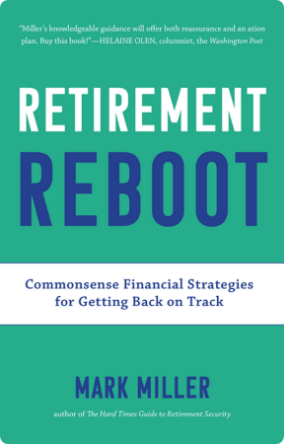Myth vs. Reality: Debunking Common Retirement Planning Misconceptions
Key Takeaways:
- Retirement planning requires personalized strategies tailored to individual circumstances, dispelling the myth of a one-size-fits-all approach.
- Starting early and staying informed are key to building a secure financial future for retirement.
Retirement planning is a crucial aspect of financial management, yet many individuals fall prey to various misconceptions that can derail their savings efforts. In this article, we aim to debunk some of the most prevalent myths surrounding retirement planning, providing clarity on what’s fact and what’s fiction. By understanding and addressing these misconceptions, you can make informed decisions to secure a comfortable retirement future.
What are some retirement planning misconceptions?
Retirement planning can be complex, and there are several misconceptions that individuals may encounter along the way. Let’s explore some of the most common myths and uncover the reality behind them.
Retirement Myth 1: You don’t need to start saving for retirement until later in life.
One of the most damaging misconceptions is the belief that retirement saving can wait. The reality is that the earlier you start saving for retirement, the better. Compound interest works in your favor, allowing your savings to grow exponentially over time. Delaying saving for retirement can significantly impact your ability to accumulate an adequate nest egg.
Retirement Myth 2: You can rely solely on Social Security for retirement income.
While Social Security provides valuable retirement benefits, relying solely on these payments is often insufficient to maintain your desired lifestyle in retirement. Social Security was never intended to be the sole source of retirement income, and it’s essential to supplement these benefits with personal savings, investments, and other retirement accounts.
Retirement Myth 3: Retirement planning is only for the wealthy.
Another common misconception is that retirement planning is only necessary for the wealthy. In reality, retirement planning is essential for individuals at all income levels. While higher-income earners may have more options available to them, individuals with modest incomes can still take steps to save for retirement and secure their financial future.
How can I avoid falling for retirement planning myths?
Avoiding retirement planning myths requires a combination of education, awareness, and proactive decision-making. Let’s explore some strategies to help you navigate through the misinformation and make informed choices for your retirement planning journey.
Strategy 1: Educate yourself about retirement planning principles.
One of the most effective ways to combat retirement planning myths is to educate yourself about the fundamentals of retirement planning. Take the time to learn about retirement accounts, investment strategies, and savings goals. By understanding the basics, you can better discern fact from fiction and make informed decisions about your financial future.
Strategy 2: Seek guidance from reputable financial professionals.
Working with a qualified financial advisor or retirement planner can provide valuable insight and guidance. These professionals can help you develop a personalized retirement plan tailored to your specific goals, risk tolerance, and financial situation. By seeking guidance from reputable experts, you can avoid common pitfalls and make sound financial decisions.
Strategy 3: Regularly review and update your retirement plan.
Retirement planning is not a one-time event but rather an ongoing process that requires regular review and adjustment. As your life circumstances change, such as marriage, children, career changes, or economic shifts, your retirement plan may need to be revised accordingly. By regularly reviewing and updating your plan, you can ensure that it remains aligned with your goals and objectives.
What retirement planning myths should I be aware of?
Awareness of common retirement planning myths is crucial for making informed decisions about your financial future. Let’s explore some additional misconceptions that you should be aware of and understand the reality behind them.
Retirement Myth 4: You can catch up on retirement savings later in life.
While it’s true that it’s never too late to start saving for retirement, waiting until later in life to catch up on savings can be challenging and may require significant sacrifices. Starting early allows you to take advantage of compounding growth and build a more substantial nest egg over time. However, if you find yourself behind on savings, it’s essential to develop a plan to increase contributions and make the most of your remaining working years.
Retirement Myth 5: Retirement planning is a one-size-fits-all endeavor.
Another common misconception is that there’s a one-size-fits-all approach to retirement planning. In reality, retirement planning should be personalized to your individual needs, goals, and circumstances. Factors such as your desired retirement age, lifestyle preferences, risk tolerance, and health status all play a role in shaping your retirement plan. By tailoring your plan to your unique situation, you can create a roadmap that aligns with your vision for retirement.
Retirement Myth 6: You can withdraw from retirement accounts without consequences.
Some individuals mistakenly believe that they can withdraw funds from their retirement accounts without facing penalties or consequences. In reality, early withdrawals from retirement accounts, such as 401(k)s or IRAs, before reaching retirement age can result in significant penalties and taxes. It’s essential to understand the rules and regulations governing retirement account withdrawals and to use these funds judiciously to avoid unnecessary fees and taxes.
In conclusion, debunking common retirement planning misconceptions is essential for making informed decisions about your financial future. By separating fact from fiction and adopting sound retirement planning strategies, you can take control of your retirement journey and work towards achieving your long-term goals. Remember to educate yourself, seek guidance from professionals, and regularly review and update your retirement plan to ensure that it remains aligned with your evolving needs and objectives.










